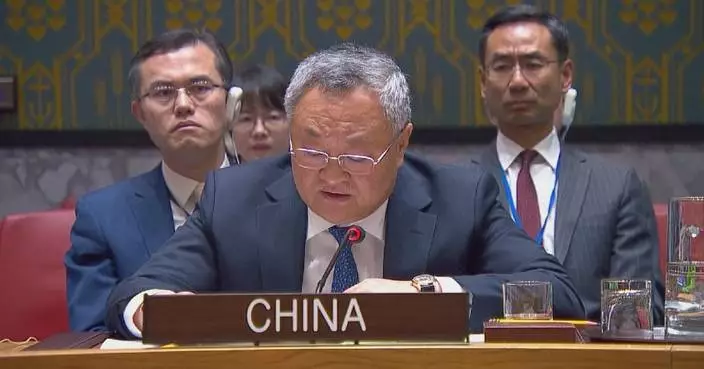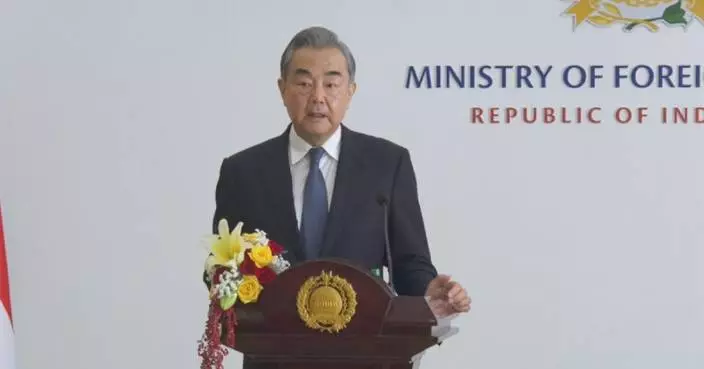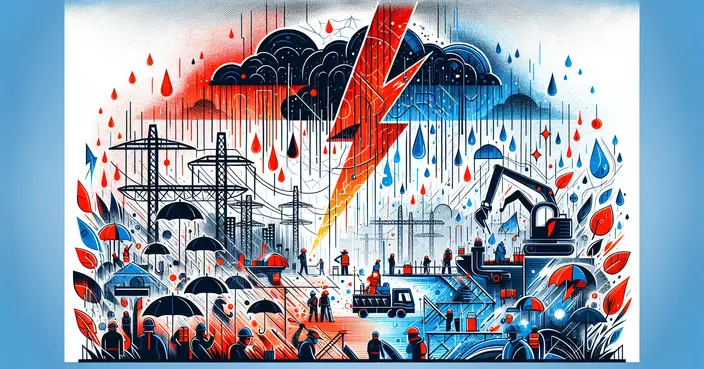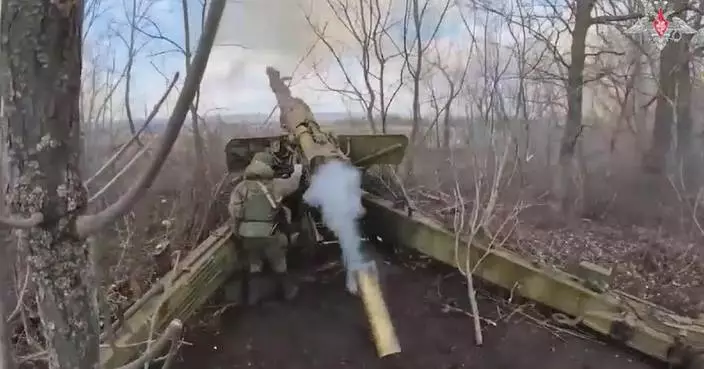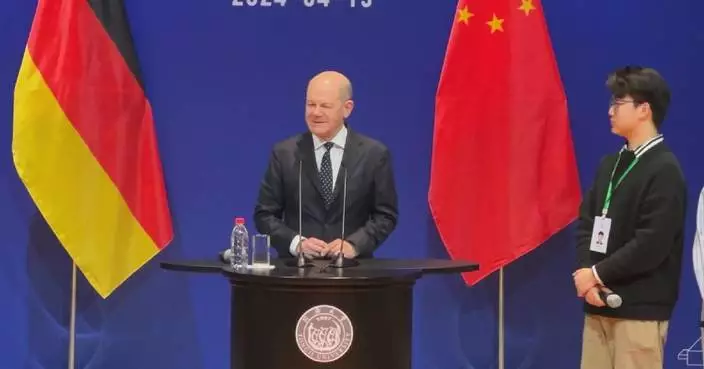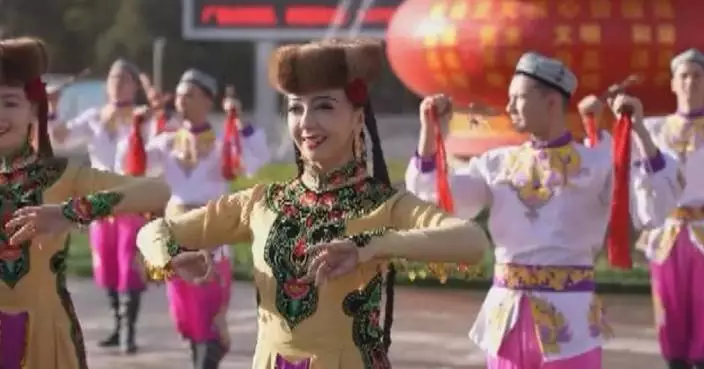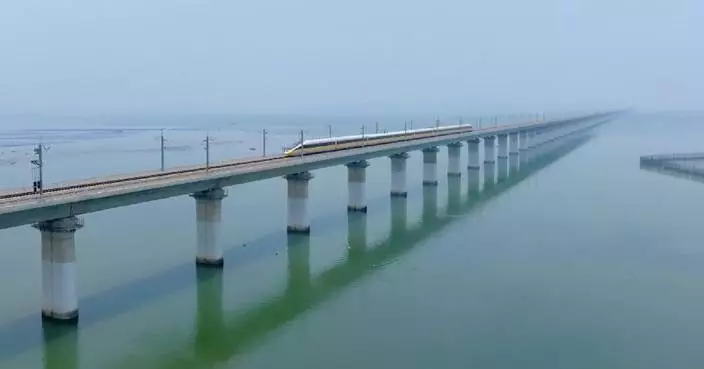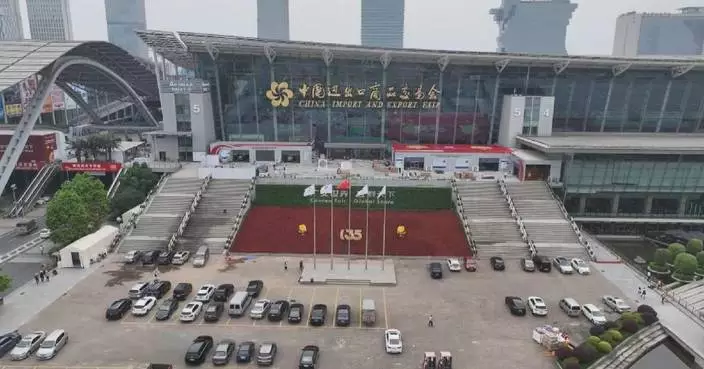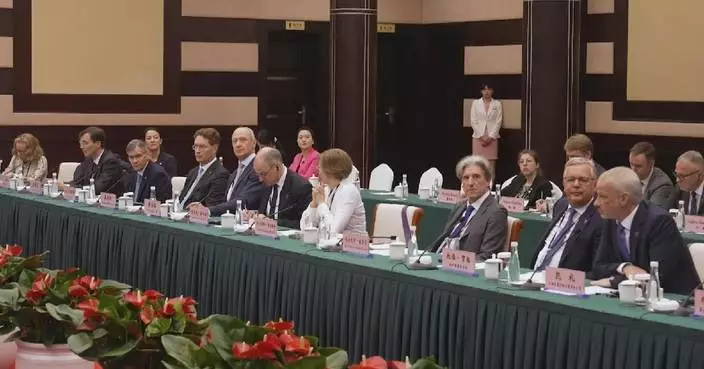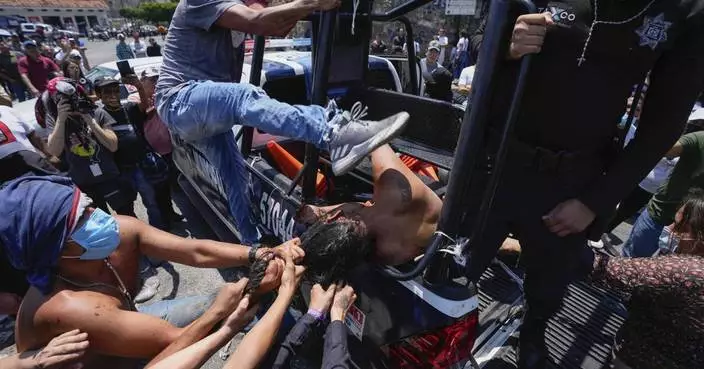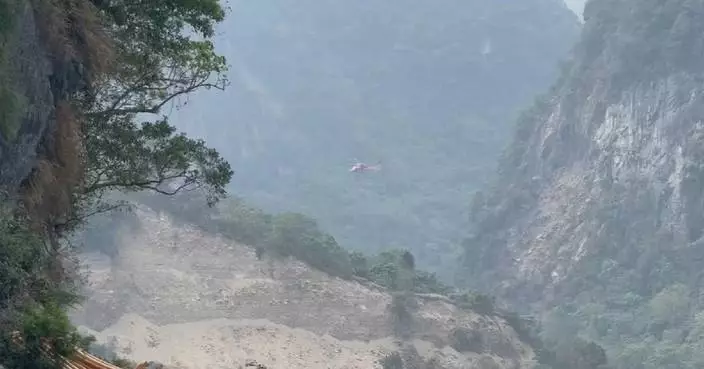Feature · News

China's economy gets off to good start in first quarter: authorities

ROK-born panda settling into new surroundings, ventures outdoors during quarantine
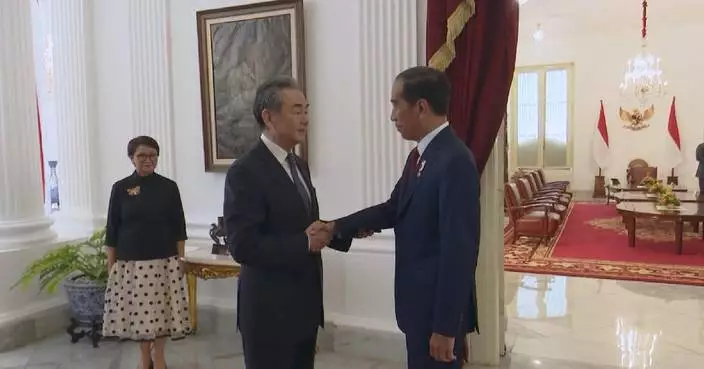
Indonesian President Joko Widodo meets Wang Yi

Jakarta-Bandung high-speed railway marks 6-month operation with 2.56 mln passengers

Industry scale of smart manufacturing equipment tops 3.2 trln yuan

China speeds building Hainan free trade port to push for higher-level opening up

Canadian exhibitor launches products, connects with Chinese market through consumer products expo

Indonesian president-elect Prabowo Subianto meets Chinese foreign minister

China's Q1 GDP growth fits reality: official of statistics
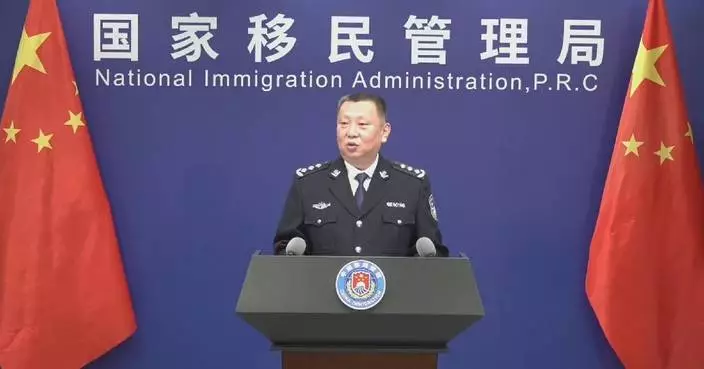
Taiwan compatriots' travel to Fujian rises sharply after new measures

Companies from RCEP countries eye Hainan Expo for business growth in China
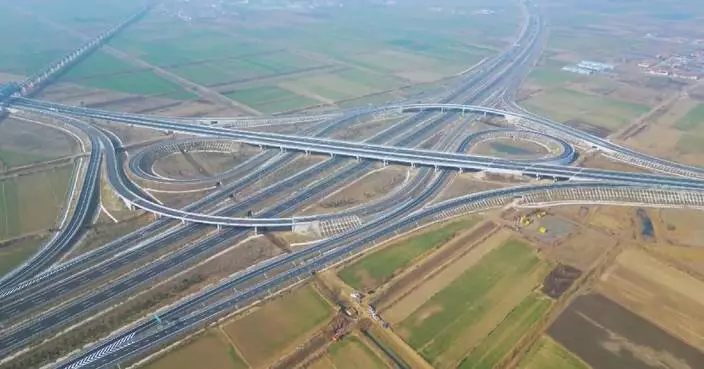
China expands transport network to facilitate high-quality development

Special announcement on fire in Tsing Yi

A former Maldives president is freed after a high court throws out his 11-year sentence

US deports about 50 Haitians to nation hit with gang violence, ending monthslong pause in flights

Chasing 5th straight win, Nelly Korda is 2 shots back at Chevron Championship after a first-round 68
Canadian exhibitor launches products, connects with Chinese market through consumer products expo
Indonesian president-elect Prabowo Subianto meets Chinese foreign minister
China's Q1 GDP growth fits reality: official of statistics
Taiwan compatriots' travel to Fujian rises sharply after new measures

China's economy gets off to good start in first quarter: authorities
ROK-born panda settling into new surroundings, ventures outdoors during quarantine
Indonesian President Joko Widodo meets Wang Yi
Jakarta-Bandung high-speed railway marks 6-month operation with 2.56 mln passengers
Industry scale of smart manufacturing equipment tops 3.2 trln yuan

China speeds building Hainan free trade port to push for higher-level opening up
Companies from RCEP countries eye Hainan Expo for business growth in China

China expands transport network to facilitate high-quality development

Special announcement on fire in Tsing Yi

A former Maldives president is freed after a high court throws out his 11-year sentence

US deports about 50 Haitians to nation hit with gang violence, ending monthslong pause in flights

Chasing 5th straight win, Nelly Korda is 2 shots back at Chevron Championship after a first-round 68

Allman Brothers Band co-founder and legendary guitarist Dickey Betts dies at 80
- The 25th Jeonju International Film Festival Kicks off on May 1st in Jeonju, Korea
- Nevada Supreme Court rulings hand setbacks to gun-right defenders and anti-abortion activists
- Hawaii Supreme Court chides state's legal moves on water after deadly Maui wildfire
- 12 jurors have been picked for Donald Trump's hush money trial. Selection of alternates is ongoing
- US vetoes widely supported resolution backing full UN membership for Palestine
- Brazil's president creates two new Indigenous territories, bringing total in his term to 10
- Hillary Clinton and Malala Yousafzai producing. An election coming. ‘Suffs’ has timing on its side
- Choctaw artist Jeffrey Gibson confronts history at US pavilion as its first solo Indigenous artist
- Trial of a southern Arizona rancher charged in fatal shooting of unarmed migrant goes to the jury

SCO students experience Chinese culture at spring camp in Xinjiang
- China home to over 3.6 mln 5G base stations
- Foreign experts laud China's strong economic start, boosting worldwide confidence
- No exception nor privilege in complying with int'l law: China FM
- China, Indonesia should serve as engine for modernization of developing countries: Chinese FM
- Int'l student from Malaysia volunteers at Hainan Expo
- Innovation ignites tradition: Guangzhou embroidery master leads charge in preserving cultural heritage
- UN to vote on Palestine's membership application
- Chinese UN representative calls for immediate ceasefire in Gaza at Security Council debate
- US returns 38 pieces of cultural relics to China

US committee releases sealed Brazil court orders to Musk's X, shedding light on account suspensions
- World Bank's Banga wants to make gains in tackling the effects of climate change, poverty and war
- Coalition to submit 900,000 signatures to put tough-on-crime initiative on California ballot
- Biden administration moves to make conservation an equal to industry on US lands
- San Francisco sues Oakland over new airport name that includes 'San Francisco'
- Google fires 28 workers in aftermath of protests over big tech deal with Israeli government
- AP Week in Pictures: North America
- UConn forward Alex Karaban declares for NBA draft while retaining college eligibility
- Man granted parole for his role in the 2001 stabbing deaths of 2 Dartmouth College professors
- Kentucky governor announces lottery to award initial round of medical cannabis business licenses

First major attempts to regulate AI face headwinds from all sides
- New attorney joins prosecution team against Alec Baldwin in fatal 'Rust' shooting
- Meta's newest AI model beats some peers. But its amped-up AI agents are confusing Facebook users
- Tesla shares tumble below $150 per share, giving up all gains made over the past year
- After 40 nights of U2 at the Sphere, Phish's Trey Anastasio talks about taking over
- This ancient snake in India might have been longer than a school bus and weighed a ton
- Idaho's ban on youth gender-affirming care has families desperately scrambling for solutions
- The Lyrid meteor shower peaks this weekend, but it may be hard to see it
- Indonesians leave homes near erupting volcano and airport closes due to ash danger
- Biden is off on details of his uncle's WWII death as he calls Trump unfit to lead the military

Group condemns 'humiliating searches' by security at Barcelona stadium
- Judge in Trump case orders media not to report where potential jurors work
- Pennsylvania school district cancels actor's speech over his activism and 'lifestyle'
- Britain's Prince Harry formally confirms he is now a US resident
- Total solar eclipse wows North America. Clouds part just in time for most
- AP PHOTOS: Cambodian villagers hold rare oxcart race, seeking to revive a centuries-old tradition
- Jelly Roll dominates the 2024 CMT Music Awards with host Kelsea Ballerini and a Toby Keith tribute
- Kyrou scores in SO as Blues beat Ducks 6-5 to preserve slim playoff hopes
- Complete list of winners from the 2024 CMT Music Awards
- Eclipse weather forecast: Clouds could spoil view along much of the path

Kraken outlast Wild 4-3 in final regular-season game for non-playoff teams
- Judge denies request for Bob Baffert-trained Arkansas Derby winner Muth to run in Kentucky Derby
- Seattle Storm become 2nd WNBA team to open their own practice facility
- The Timberwolves coaching staff, empowered by Finch and energized by chemistry, is a true asset
- Jack Leiter makes pitching debut for Rangers as they beat Tigers 9-7
- Carlos Carrasco pitches solid into the 6th inning, Guardians edge Red Sox 5-4 to improve to 13-6
- Miami Marlins at Chicago Cubs game postponed because of rain in the forecast
- How bad did Dylan Strome want to make the NHL playoffs? Ask his brothers
- Leverkusen, Roma, Atalanta, Marseille into Europa League SF. Liverpool, West Ham, Milan, Benfica out
- Seager's RBI groundout and Taveras RBI single lead the Rangers over the Tigers 9-7

Revised Code of Practice for Bamboo Scaffolding Safety gazetted
- FS continues visit to Hangzhou and Suzhou (with photos/videos)
- HKSAR Government District Officers continue study programme on district governance
- LCSD to organise inaugural Chinese Culture Festival from June to September to celebrate magnificence of Chinese culture through enchanting visuals and rhythms
- DEP inspects chain restaurants to understand trade's preparations for implementation of new regulation on disposable plastic products
- LCSD announces organisation selected to manage, operate and maintain Avenue of Stars and Salisbury Garden
- FEHD uses video recording for evidence collection to strengthen crackdown on unlicensed cooked food hawkers
- FSD responds to media enquiries on white foam found at Siu Chik Sha, Tseung Kwan O
- Hong Kong Customs dismantles money laundering syndicate with over $1.8 billion laundered
- HKMA welcomes commencement of service of "Credit Data Smart"

First list of participating companies for 7th CIIE unveiled
- One-stop service at Canton Fair facilitates foreign trade
- Canton Fair welcomes newcomers, loyal attendees as overall participation soars
- Innovation has become important driving force for China's economic growth: IMF official
- AI reshaping future of content creation, sales in China
- Russia launches multi-front strikes on Ukrainian forces, Ukraine repels Russian attacks
- Baidu's AI chatbot garners over 200 million users since release
- EU to impose new sanctions against Iran
- China's GDP growth to help boost global economic rebound: experts
- Newly unearthed artifacts shed light on social norms of ancient Chu state
Category · News

Kraken outlast Wild 4-3 in final regular-season game for non-playoff teams

Allman Brothers Band co-founder and legendary guitarist Dickey Betts dies at 80

The 25th Jeonju International Film Festival Kicks off on May 1st in Jeonju, Korea

Revised Code of Practice for Bamboo Scaffolding Safety gazetted

Nevada Supreme Court rulings hand setbacks to gun-right defenders and anti-abortion activists
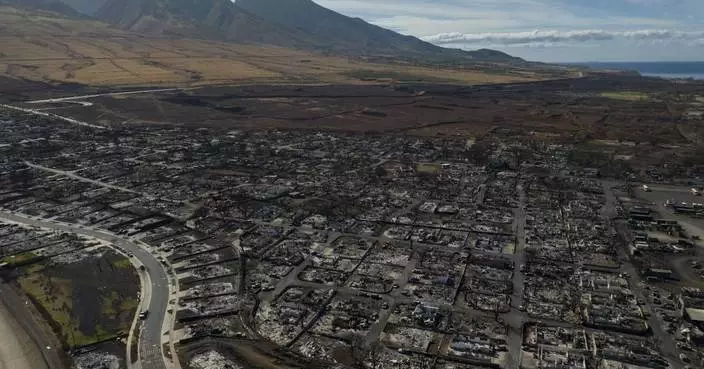
Hawaii Supreme Court chides state's legal moves on water after deadly Maui wildfire
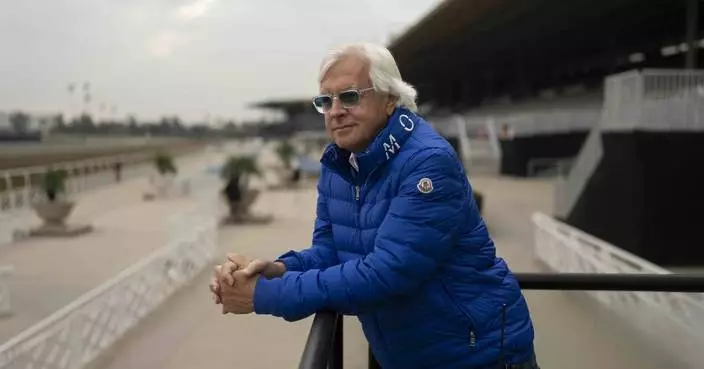
Judge denies request for Bob Baffert-trained Arkansas Derby winner Muth to run in Kentucky Derby

Seattle Storm become 2nd WNBA team to open their own practice facility

12 jurors have been picked for Donald Trump's hush money trial. Selection of alternates is ongoing

US vetoes widely supported resolution backing full UN membership for Palestine

Brazil's president creates two new Indigenous territories, bringing total in his term to 10
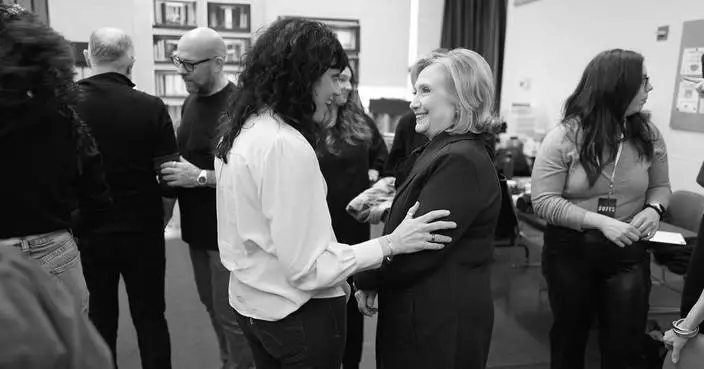
Hillary Clinton and Malala Yousafzai producing. An election coming. ‘Suffs’ has timing on its side

Choctaw artist Jeffrey Gibson confronts history at US pavilion as its first solo Indigenous artist
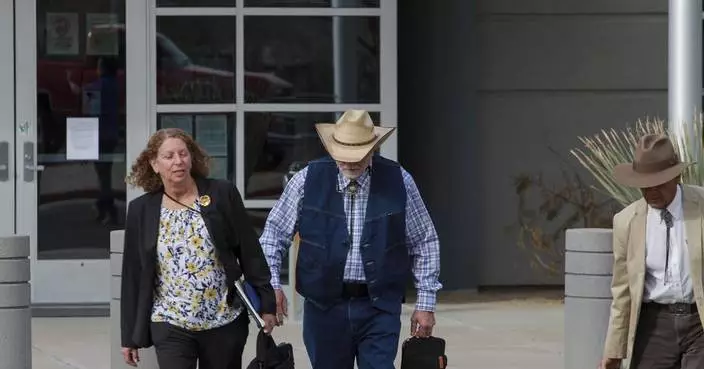
Trial of a southern Arizona rancher charged in fatal shooting of unarmed migrant goes to the jury

US committee releases sealed Brazil court orders to Musk's X, shedding light on account suspensions

The Timberwolves coaching staff, empowered by Finch and energized by chemistry, is a true asset

World Bank's Banga wants to make gains in tackling the effects of climate change, poverty and war

Coalition to submit 900,000 signatures to put tough-on-crime initiative on California ballot

Ex-youth center resident testifies that counselor went from trusted father figure to horrific abuser

Group condemns 'humiliating searches' by security at Barcelona stadium
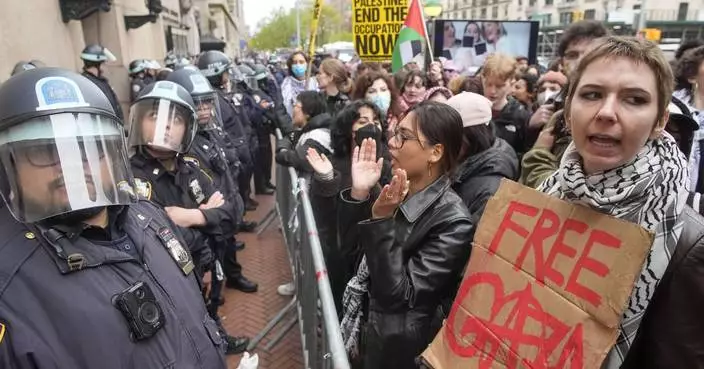
Police arrest dozens of pro-Palestinian protesters at Columbia, including congresswoman's daughter

Jack Leiter makes pitching debut for Rangers as they beat Tigers 9-7

Judge in Trump case orders media not to report where potential jurors work

Pennsylvania school district cancels actor's speech over his activism and 'lifestyle'

Suspect in fire outside of US Sen. Bernie Sanders' Vermont office to remain detained, judge says

Carlos Carrasco pitches solid into the 6th inning, Guardians edge Red Sox 5-4 to improve to 13-6
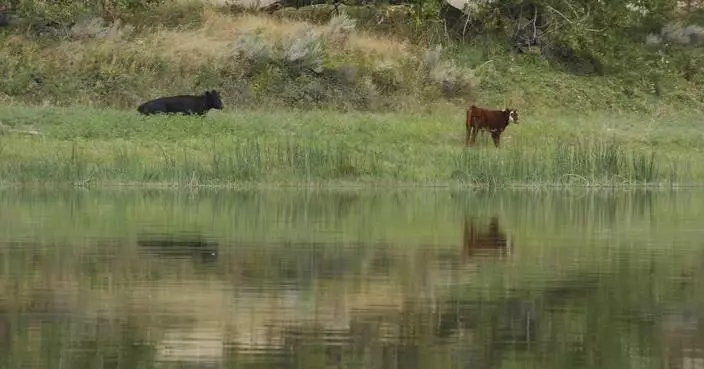
Biden administration moves to make conservation an equal to industry on US lands
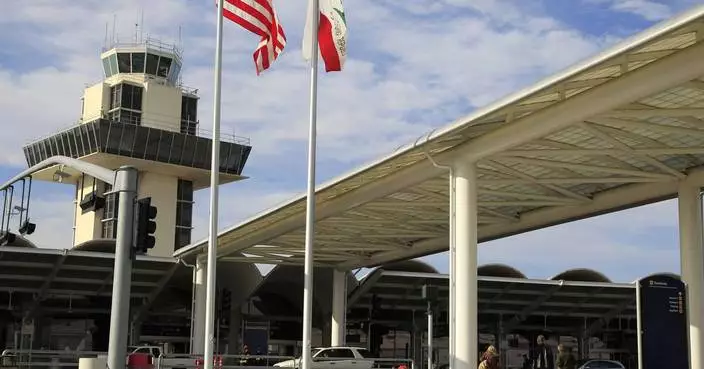
San Francisco sues Oakland over new airport name that includes 'San Francisco'

Google fires 28 workers in aftermath of protests over big tech deal with Israeli government
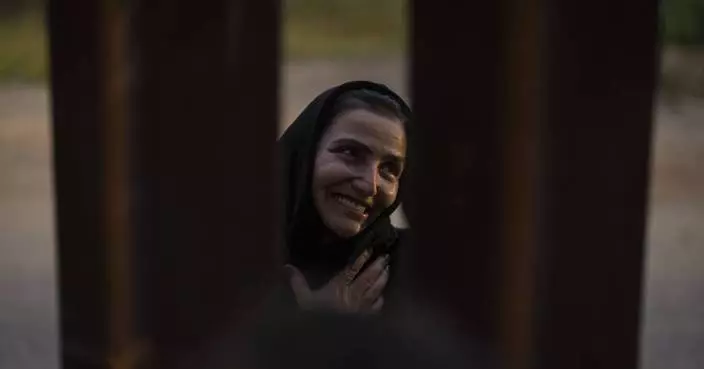
AP Week in Pictures: North America

UConn forward Alex Karaban declares for NBA draft while retaining college eligibility

First major attempts to regulate AI face headwinds from all sides

Man granted parole for his role in the 2001 stabbing deaths of 2 Dartmouth College professors
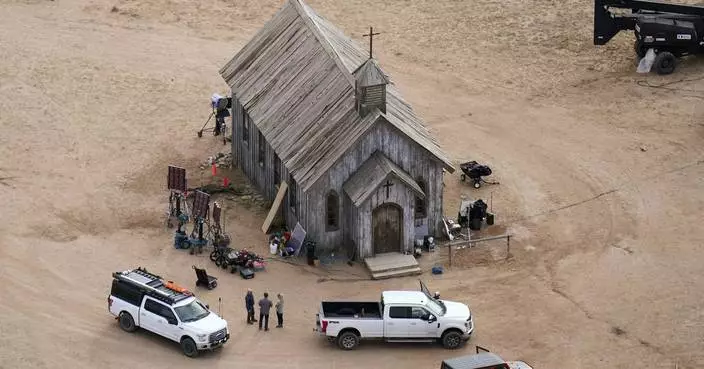
New attorney joins prosecution team against Alec Baldwin in fatal 'Rust' shooting

Miami Marlins at Chicago Cubs game postponed because of rain in the forecast

Social media searches play central role at jury selection for Trump's first criminal trial

Light pole installation in Missouri hits fiber line, knocks out 911 service in several states

How bad did Dylan Strome want to make the NHL playoffs? Ask his brothers
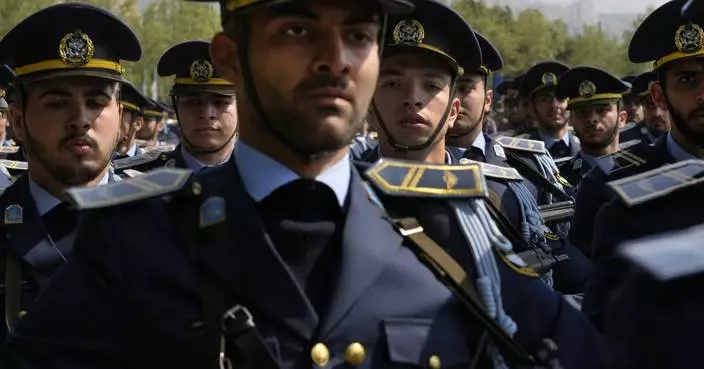
The Latest | US vetoes UN resolution backing full Palestinian membership and puts sanctions on Iran

Leverkusen, Roma, Atalanta, Marseille into Europa League SF. Liverpool, West Ham, Milan, Benfica out

Kentucky governor announces lottery to award initial round of medical cannabis business licenses

Robert F. Kennedy Jr. secures ballot access in battleground state of Michigan

Seager's RBI groundout and Taveras RBI single lead the Rangers over the Tigers 9-7

House leaders toil to advance Ukraine and Israel aid. But threats to oust speaker grow

Britain's Prince Harry formally confirms he is now a US resident

Stock market today: Wall Street drifts to a mixed finish as yields tick higher

Booming cold drink sales mean more plastic waste. So Starbucks redesigned its cups
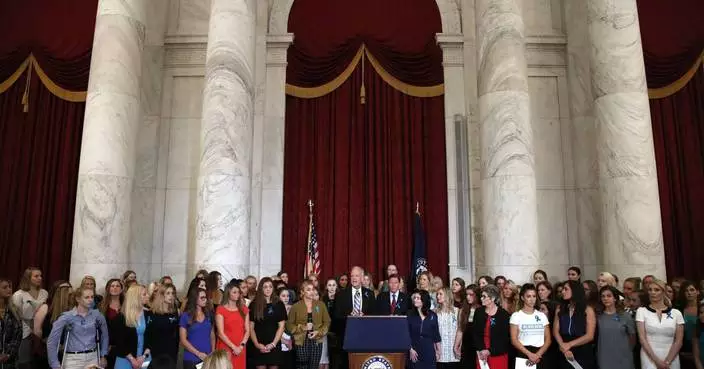
Lawyers for Nassar assault survivors have reached $100M deal with Justice Department, AP source says

Iraq's prime minister heads to Michigan to meet Arab Americans at a tense time for the Middle East
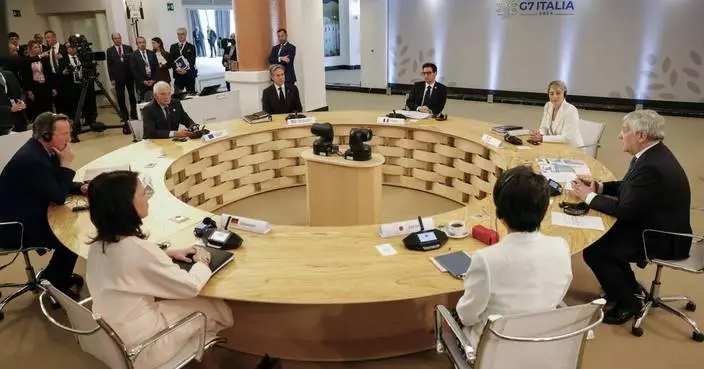
NATO and the EU urge G7 nations to step up air defense for Ukraine and expand Iran sanctions
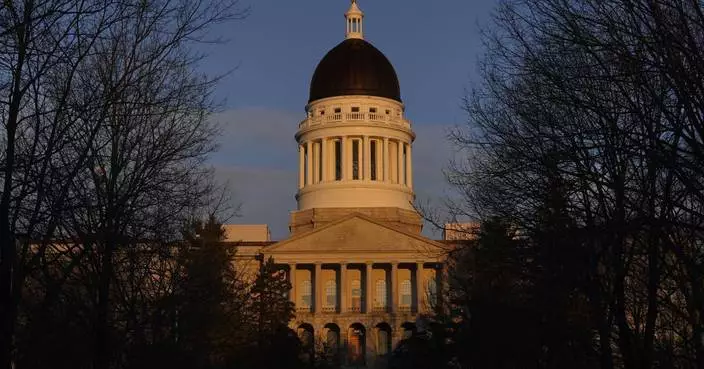
Sweeping gun legislation approved by Maine lawmakers after deadliest shooting in state history
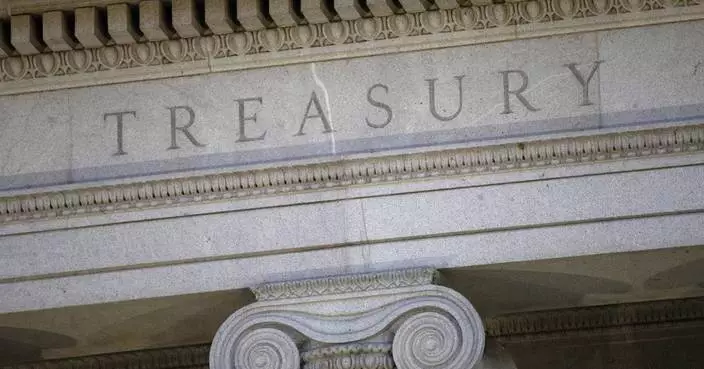
US and UK issue new sanctions on Iran in response to Tehran's weekend attack on Israel
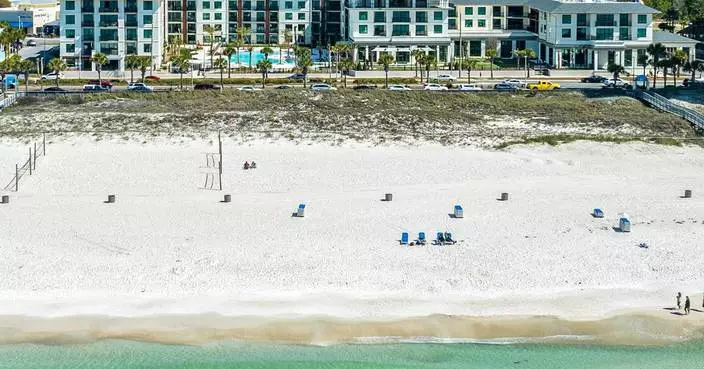
The St. Joe Company Has Been Recognized as the 2023 Multi-brand Developer of the Year in the Hilton Americas Development Awards

Red Sox All-Star Devers misses Cleveland game with soreness in his left knee

Democrats weigh prospect of helping Johnson save his job as House speaker

What's inside the $95 billion House package focused on aiding Ukraine and Israel

Ryan Pepiot pitches 6 strong innings as Rays beat Angels 2-1
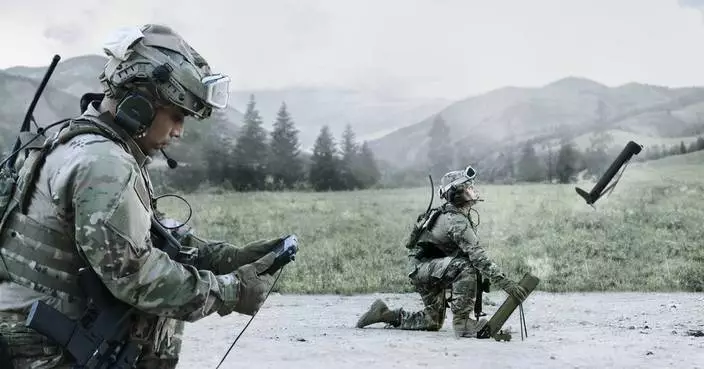
AV’s Switchblade 300 Selected for U.S. Marine Corps’ Organic Precision Fires-Light Program

Kennedy family makes ‘crystal clear’ its Biden endorsement in attempt to deflate RFK Jr.’s candidacy
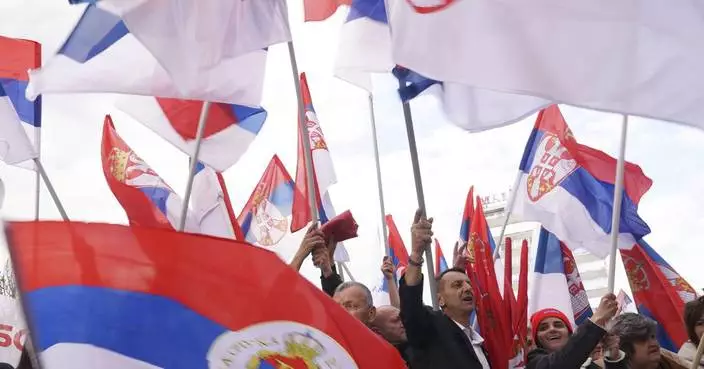
Thousands of Bosnian Serbs attend rally denying genocide was committed in Srebrenica in 1995

Coyotes officially leaving Arizona for Salt Lake City following approval of sale to Utah Jazz owners

Houston Astros aim to turn things around after limping out to 6-14 start

Punjab Kings run out of steam as Mumbai Indians win by 9 runs

Sluggish start for spring homebuying season as home sales fall in March with mortgage rates rising
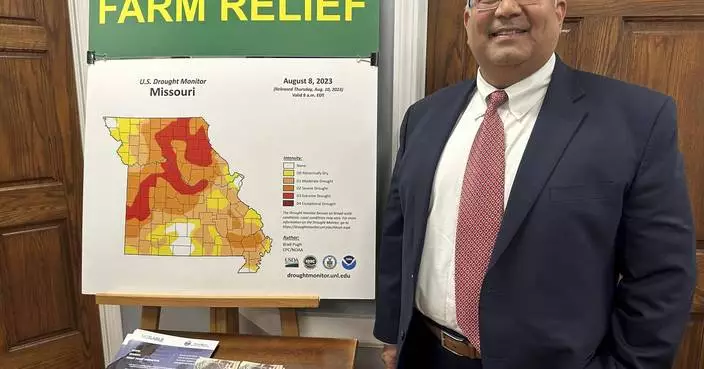
Missouri lawmakers back big expansion of low-interest loans amid growing demand for state aid

Average long-term US mortgage rate climbs above 7% to highest level since late November

Swiatek beats Mertens and will face Raducanu in Stuttgart quarterfinals

Man charged with 4 University of Idaho deaths was out for a drive that night, his attorneys say

Meta's newest AI model beats some peers. But its amped-up AI agents are confusing Facebook users

International Symposium on the Concept of Intercultural Exchanges and Mutual Learning Successfully Convenes at UNESCO Headquarters

NHL PLAYOFFS: 'It's wide open' is the theme as the race to the Stanley Cup begins
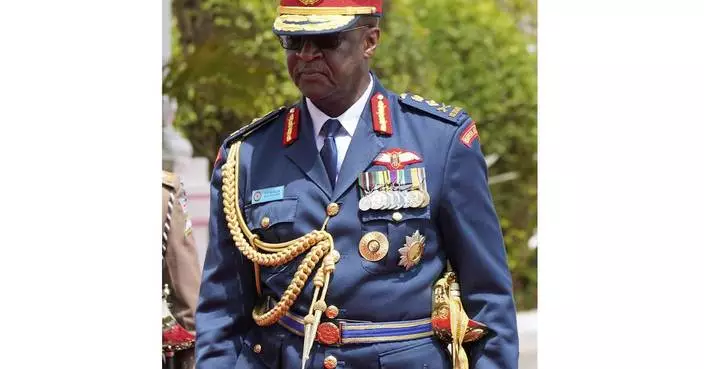
Kenya’s military chief dies in a helicopter crash
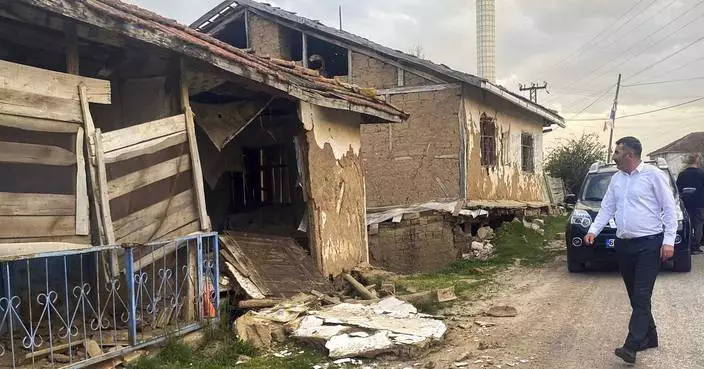
A magnitude 5.6 quake hits central Turkey, damaging some homes. No serious injuries are reported

Tesla shares tumble below $150 per share, giving up all gains made over the past year

This Earth Day (April 22) Enrich Foods Invites You To Be ‘Water-Smart’

The Titans go into the NFL draft flexible at No. 7 with lots of needs to fill

Jets might have a tough call to make between a playmaker or protection at No. 10 in the NFL draft

After 40 nights of U2 at the Sphere, Phish's Trey Anastasio talks about taking over
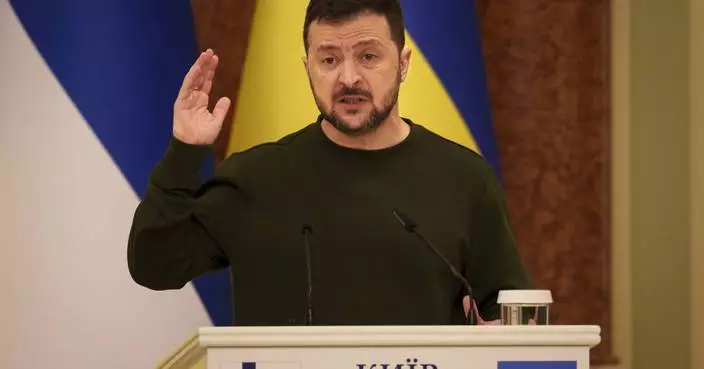
Poland arrests man suspected of spying for Russia to aid Zelenskyy assassination plot

Not only New York casinos threaten Atlantic City. Developer predicts Meadowlands casino is coming

Long-lost first model of the USS Enterprise from 'Star Trek' boldly goes home after twisting voyage

Workers at Mercedes factories near Tuscaloosa, Alabama, to vote in May on United Auto Workers union
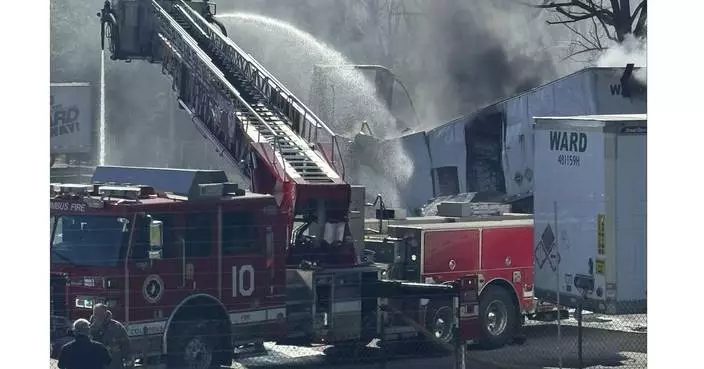
Fire in truck carrying lithium ion batteries leads to 3-hour evacuation in Columbus, Ohio

The Latest | A second seated juror dismissed by judge from Trump's hush money trial











